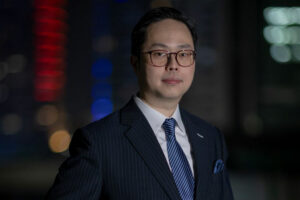Prime Philippines founder and chief executive ofificer
By Beatriz Marie D. Cruz, Reporter
PRIME PHILIPPINES, a homegrown real estate consultancy, plans to expand its advisory and brokerage services to the property sectors across the Asia-Pacific markets, according to its founder.
Founded in 2013 by Jettson P. Yu, the company specializes in providing market insights and solutions for the Philippine real estate sector.
“Our dream for PRIME Philippines is to be the first fully local, homegrown real estate consulting brokerage research firm to go global,” Mr. Yu told BusinessWorld last week.
“For many decades, it’s always been foreign consulting firms going to the Philippines, conquering our business landscape, telling us what to do. But for the next 10 years, our goal is to go overseas and provide them our advisory services,” he said in mixed English and Filipino.
PRIME Philippines aims to update local and foreign investors on the latest developments in the country’s real estate sector, focusing on the office, retail, and industrial segments.
The company’s key services include landlord and tenant representation, research and advisory services, property acquisition and disposal, project management, and design and construction.
Now recognized as one of the fastest-growing real estate consultancy firms in the country, Mr. Yu acknowledged that PRIME Philippines faced a challenging start, particularly in an industry dominated by established veterans and multinational firms.
“When I started the company at the age of 23, I was doing door-to-door [meetings] almost every day,” he said. “I was knocking on five to eight meetings per day, introducing myself and my company to property owners around Quezon City.”
“People who were twice or thrice my age told me, ‘Jet, you’re in the wrong business.’ That’s what inspired me to push further,” he said.
“But when I turned 30 years old, I realized that my age was actually an advantage. When you’re young, you have more energy, and you can work longer hours.”
UNTAPPED AREASPRIME Philippines’ beginnings trace back to the early 2010s, when Quezon City — Mr. Yu’s home city — had few, if any, call centers.
At the time, most commercial real estate developments were concentrated in the central business districts of Metro Manila, while Quezon City was largely regarded as a residential area. This imbalance contributed to worsening traffic congestion across the region, Mr. Yu said.
“That’s why you have traffic, because in the morning, all the people from Quezon City were traveling to Makati and Ortigas. In the afternoon, everyone’s going home,” he said in Filipino.
With the prominent gap in commercial real estate in Quezon City, Mr. Yu founded PRIME Philippines to promote the former Philippine capital as a potential commercial hub.
“While nobody noticed Quezon City, I saw the opportunity. There’s a city, but it’s not fully enabled.”
Another challenge Mr. Yu saw was that PRIME would be up against established multinational brokerage and consulting firms.
“When I was about 25, and my company was beginning to establish its credibility and trust, I was told, ‘You won’t be able to beat the international [brokers].’”
To be competitive, Mr. Yu’s response was to “challenge tradition” by expanding its services outside the capital region to emerging locations like Davao and Cebu.
“Almost all the [real estate] offers were in Metro Manila. So, we gave them a broader perspective by providing data from certain provinces.”
PRIME also sought to highlight the country’s industrial real estate sector, which led to the opening of its industrial brokerage team in 2017.
“We were able to make the broader, neglected areas of the Philippines marketable and known to investors.”
As a young chief executive officer, Mr. Yu noted that starting a business today is more challenging for the youth than it was in his time.
“During the time of the millennials, everything was bullish, so I think the chances of failure if you started a business or a development were lesser.”
“But for Gen Zs now, especially post-pandemic, starting a business is much more challenging,” citing global headwinds like the ongoing trade wars.
With this, Mr. Yu called on the need for young people to utilize today’s trends such as artificial intelligence and remote work, while also cultivating adversity quotient amid personal and external uncertainties.
“There’s an adage that says it’s not the strongest nor the most intelligent that survives the test of time — it’s the most adaptable to change. So, that’s one of the things I always say to our fresh graduates.”
